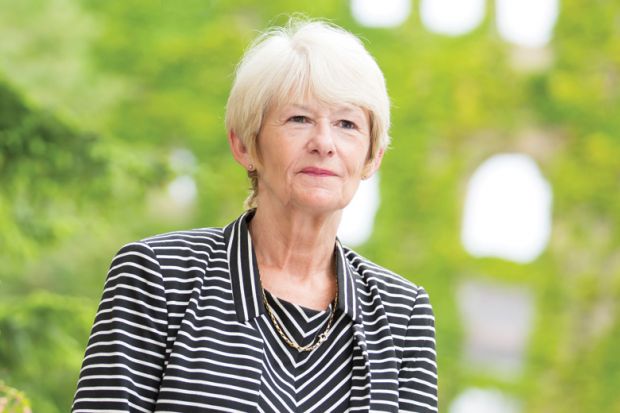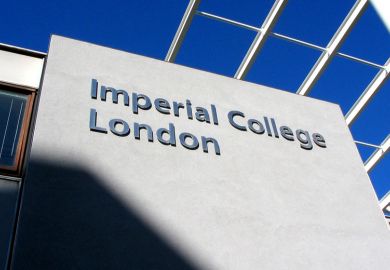Russell Group universities are “making an assumption” that the UK “may not” be part of the European Union’s next research programme when it starts in January, according to the group’s chair, Dame Nancy Rothwell.
Meanwhile, Sir Anton Muscatelli, the University of Glasgow vice-chancellor, also told MPs on the Science and Technology Committee in a hearing on 9 September that the institution’s “peer universities” were predicting losses of international student numbers ranging from no loss to “as large as 40 or 50 per cent”.
Dame Nancy said that the Covid crisis had “opened up the Pandora’s box we have all managed to keep a lid on for so long” by emphasising the extent to which research relies on cross-subsidy from international student fees – now in jeopardy because of the pandemic.
There have been concerns that the UK government will not be able to reach a deal with the EU on associating to its next research programme, Horizon Europe, amid concerns over the potential cost of the association payment and the wider impact of UK-EU relations.
Russell Group universities were “sadly making an assumption that they may not be participating, but they would hope to do so”, Dame Nancy said when asked about the status of Horizon Europe talks.
She added that universities were “anxious” to see “some international funds” if association did not happen. Horizon Europe brought “networks of collaboration” that the UK “simply could not do as a single nation”, Dame Nancy said.
Julia Buckingham, the Universities UK president and Brunel University vice-chancellor, said that UK researchers were “increasingly cautious” about going into EU-funded collaborations because they feared they might soon be ineligible.
Dame Nancy conceded on association payments required by the EU that if the UK were to become a net contributor it could “come to a point where it [association] is probably not viable”. But “if it was break-even I would say it was more than worth it”, she added. And any replacement funding for universities provided by the UK government if it does not associate to Horizon Europe would be needed “immediately”, she said.
On the Covid crisis, all three vice-chancellors agreed that it would take until the end of October for universities to get clarity on their international student numbers. There was uncertainty over whether students would be able to get visas – with many visa offices having been closed – and whether they would be able to travel to the UK, they warned.
Dame Nancy said on cross-subsidy for research that “we’re now working with government, with the minister for science and research [Amanda Solloway] to say we can’t let this long-term problem go on because it is going to keep coming back”.
Universities were “somewhat hit on every side” at present, she warned.
“If we are going to lose 50 per cent of our international students, there are virtually no universities that can withstand that loss without taking a significant loan,” Dame Nancy said.
Universities were deferring capital projects and long-term maintenance, which would “come back and bite us at some point”, she added.
On enforcing social distancing rules for students in the pandemic, Dame Nancy said that there would be a range of sanctions starting with warnings, before adding: “I hope it doesn’t come to this, but ultimately it will be exclusion from the university if they fail to adhere to what is a very important safety issue.”




